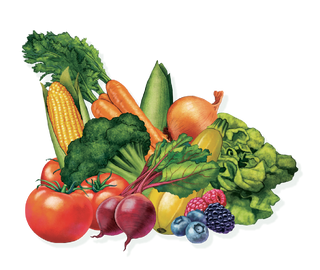Compost Qs & As: Mushroom Soil, Grass Clippings and Getting Started
Q. I'm establishing a new garden in a new home. I was excited to get my raised beds built but then became a new aunty and dashed off to be with my sister and nephew. While away, my *darling* husband had 100% mushroom soil (sold as "mushroom compost") delivered and filled EVERYTHING with it: Raised beds, planters and pots; with the leftovers cooling in the corner of the yard. What can I do?! While I appreciate his nice gesture, I am now saddled with 100% mushroom soil beds. There's no room to mix in top soil. Will this burn up my plants? Am I up the Compost Creek?
- ----Kristin in Chattanooga
A. Yes and no. Mushroom soil—aka mushroom compost—is kind of a hybrid. It's made with a good amount of steaming fresh horse manure mixed with ground up corncobs and lots of other things, with the result being a kind of half compost, half composted manure. It's also available to consumers in two forms: Fresh from the mushroom farm and 'aged'. The comment about 'cooling' makes me fear that her hubby got fresh mushroom soil—which, yes, would 'burn' plants. Even aged mushroom soil—no heat; no smell—is too rich to use alone. So hubby has some shoveling to do.
He doesn't have to take it all out; he can leave about a quarter to a third—but no more than that. Then mix in some screened black topsoil and a good amount of soil-free mix or perlite to lighten things up. Offer some of the extra mushroom soil to neighbors and friends and let the rest cook down for future seasons. And be sure to test the new mix with some plants and seeds before going all in to make sure it's been diluted down to reasonable levels.
Q. I'm a novice gardener who wants to utilize all the organic matter I am currently throwing away. Do I need special equipment like a compost bin? How long does it take? What do you mean when you talk about "hot" compost? Are there alternatives to traditional composting that you recommend? For instance, I hear you talk about the worms you have in your house.
- ---Mike in Peachtree City, Georgia
Answer 1: You don't need any special equipment; you can compost shredded leaves all by themselves in a big open wire cage. But recycled black plastic compost bins with locking lids are great for small spaces, urban areas, and for incorporating some—but not too much—of your kitchen waste.
Answer 2: "Hot compost" happens when you mix a big pile of dry browns—typically shredded leaves—with a rich source of nitrogen, like coffee grounds or horse manure, and keep the moisture level right. Such piles quickly heat up to 140 degrees or more and then cool back down. The compost that results has the highest disease-fighting potential. "Cold" compost is when you just pile stuff up and let Nature take its course. If you're diligent at building a big pile correctly and turn it occasionally, hot compost can be made in a month or two. Cold compost is generally ready after a year or two.
Answer 3: And indoor worm bins are THE best way to recycle your kitchen waste. The "worm tower" system I use has a very small footprint, but you can stack the modular trays high enough to process a LOT of scraps. Most kitchen waste slows down outdoor composting and cools the pile. Specialized redworms turn that same waste into the absolute finest black gold.
Q. In his "Book of Compost", Mike says that chemical treatment of lawns is unnecessary if the grass is mowed at the correct level. I have not found this to be true. I have a fescue lawn, cut my grass high, have it chemically treated, and I still get many weeds. Any suggestions?
- ---Tom in Snellville, GA
A. The big problem here involves the choice of fescue for that region and the cultural realities of these types of grasses. Fescue is a super-excellent choice overall, but it is a cool-season grass that gets stressed mightily in the summer heat—especially that far South. It's also a clumping grass that can't fill in its own bare spots and must be reseeded or over-seeded in the early Fall every couple of years to keep weeds at bay.
Q. Tom continues: "So I have this chemically-treated grass, and I do use it for making compost. A local Master Gardener told me that it's ok as long as I don't apply the resulting compost for so many weeks or months after the last chemical treatment. Is this true? And if so, is it also safe to use the compost in my vegetable garden?"
A. No.
First, grass clippings should always be left on the lawn; they're 10% nitrogen by weight and provide a gentle feeding every time you mow; and they'll help cool that hot Southern soil in the summertime. And sorry, but the MG is wrong. Some of the most persistent herbicides in use today remain active at killing plants for years after being composted. Such compost can be spread back onto a lawn, but nowhere else. These herbicides are designed to kill every other type of plant—at levels below one part per million.
And most importantly— you won't need those nasty chemical herbicides! Just treat your grass well! That means feed it correctly (Spring and Fall for cool season varieties), water it deeply and infrequently (no more than twice a week), be very gentle with it at the height of summer (it is then struggling just to survive), overseed in the late summer/early fall and weeds won't have a chance!

